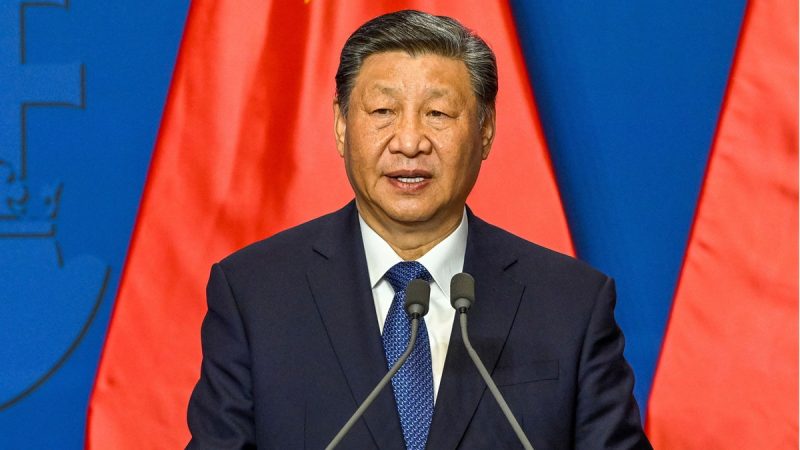Examining the next threat from Communist China: Our healthcare system

In today’s political environment, it is hard to envision important issues where Republicans and Democrats can find common ground. Protecting the safety and security of citizens from the Chinese Communist Party (CCP) is hopefully still that issue.
In recent years, we have seen growing agreement among lawmakers that the CCP is actively working against the security of the U.S. Whether through coercive trade practices, espionage, military aggression or technology theft, the CCP is intent on undermining American strength.
President Donald Trump has rightly identified our nation’s increased dependence on Chinese companies as a clear threat to national security. In response, he has taken action to rebuild our domestic industrial manufacturing bases. This is especially true in critical security industries like defense, nuclear development, pharmaceutical manufacturing and data center infrastructure.
The Trump administration should now look at medical devices. This lesser-known threat to American privacy and security lurks within our hospitals, health care facilities and even in the homes of everyday Americans. Used to treat patients, monitor patient health and inform medical decisions made by health care professionals, medical devices are critical tools used in the everyday care of our most vulnerable members of society.
It is no wonder, then, that medical devices made by Chinese companies not only have the potential to take advantage of that intimate access, but have already been shown to exploit those vulnerabilities to gain access to the personal, private data of American patients.
Just this month, it was reported that medical hardware from Shanghai-based United Imaging has been installed in some of the country’s top research labs. In some instances, these labs were even funded by the National Institutes of Health (NIH). Not only has United Imaging worked alongside the Chinese military and the state-run Chinese Academy of Sciences, according to the FBI, the company has also bribed employees working at an NIH-funded lab to backchannel non-public information about their research to United Imaging and the Chinese Academy of Sciences.
Earlier this year, the Food and Drug Administration (FDA) issued a warning about a patient monitor made by Chinese-based company Contec, specifically calling attention to a software backdoor on the device that once connected to the internet ‘begins gathering patient data, including personally identifiable information (PII) and protected health information (PHI), and exfiltrating (withdrawing) the data outside of the health care delivery environment.’
The Department of Homeland Security’s Cybersecurity and Infrastructure Security Agency (CISA) followed up with its own report, saying that the backdoor enabled remote actors to engage in ‘remote code execution and device modification with the ability to alter its configuration.’
Far from being an idle threat, CISA explained that this vulnerability in a machine that monitors and displays critical information like electrocardiograms and blood pressure could result in life-or-death consequences: ‘This introduces risk to patient safety as a malfunctioning monitor could lead to improper responses to vital signs displayed by the device.’
Medical devices made by Chinese companies have quietly made their way into many hospitals and clinics in the United States, bringing with them hidden risks that are waiting to be abused by the CCP.
First, patient privacy is compromised when unknown actors can access and siphon the most sensitive and confidential data from every patient in America, undermining the very foundation of trust in our health care system.
Compounded with the fact that Chinese law compels Chinese companies to cooperate and share information with the CCP and that China prizes big data and is gathering information on individuals around the world, we can be assured that whatever private information is gathered on American patients is not in our national interest.
Second, we cannot trust that information siphoning will not escalate to more serious tactics that put patient lives at risk. Remote access to medical devices could result in real-world harm to patients if those devices were reconfigured to display false information that then led to unnecessary and harmful medical interventions.
Third, the U.S. healthcare system is becoming too dependent on Chinese companies to run our hospitals. It does not take much of a leap to think about what would happen if the CCP decided to cut off the supply of medical devices. Just like critical minerals, energy or military equipment, depending on Chinese companies for medical devices is a clear threat to American security.
What these threats amount to is that the U.S. can no longer blindly outsource medical devices – some of our most vital and sensitive equipment – to companies that operate at the behest of foreign adversarial governments like the CCP. It is critical that America has a domestic supply chain of medical devices.
Now is the time that lawmakers, both at the federal and state level, take this threat seriously and take meaningful steps to reduce the risks posed by these medical devices.
Protecting Americans from threats to their health and security should be an easy, bipartisan win.



